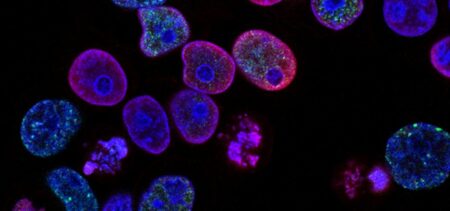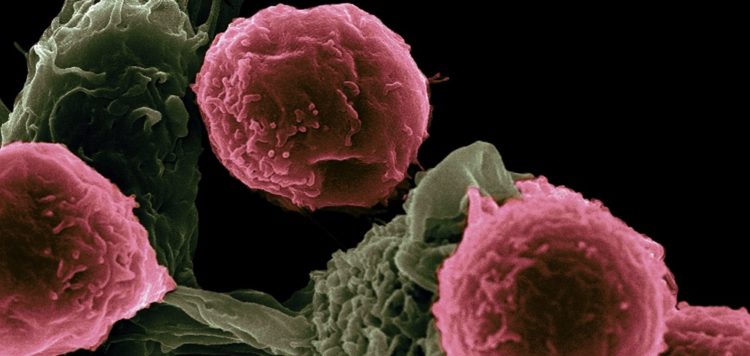There is no question that a cancer diagnosis has long inspired dread among both patients and doctors. Depending on the type and severity of the disease, cancer can be challenging to diagnose and treat, and the medical community is still working on better understanding the disease and how to manage it. According to the Centers for Disease Control and Prevention (CDC), cancer is now the second leading cause of death among Americans. However, numerous types of cancer can be prevented or successfully treated, especially if they are caught in the early stages. The good news is that recent oncology breakthroughs can improve patient outcomes even for the deadliest cancers.
While a cancer diagnosis is undoubtedly scary, most types of cancers are now treatable, and a wide range of treatment options are currently available. Depending on the type, stage and location, patients and their doctors can opt for surgery, chemotherapy, radiation therapy, or a combination of such procedures. The goal of these treatments is to eradicate cancerous cells while preserving as much healthy tissue as possible. Confirmed by Lung Cancer Center, the most deadly types of cancer are lung cancer, mesothelioma, colon cancer, breast cancer, and pancreatic cancer.
These five types of cancer can remain undiagnosed for long periods of time, cause aggressive symptoms compared to other cancers, or have fewer treatment options than the usual range of choices available for these conditions. Nonetheless, recent breakthroughs provide a new reason for hope.
New Treatment Improves Survival Chances
According to Medical News Today, osimertinib—a treatment especially developed for non-small cell lung cancer (NSCLC), increased the patients’ chances of survival after surgery. In the US, severe types of cancer, such as lung cancer, are fairly common. Hence, preventing these diseases, recognizing the warning signs, and developing better treatments have become vital. With approximately 80-85% of all cases of lung cancer now being classified as NSCLC, the fact that a new trial demonstrated that osimertinib can improve patients’ chances of survival is extremely fundamental. The researchers responsible for the trial say this new drug might be more efficient than existing inhibitors in stopping the disease in its tracks.
The clinical trial was opened to 682 patients with NSCLC who underwent full lung resection, with or without chemotherapy after surgery. The patients were randomly administered either 80 milligrams of osimertinib or a placebo pill daily for up to three years. After four years, the results of the trial showed that 73% of patients taking osimertinib were alive and showed no signs of cancer, compared to only 38% of those who took the placebo. Furthermore, the number of patients who experienced metastases was also lower in the group taking osimertinib. As a result, researchers have reason to believe that osimertinib is better than other similar treatments in stopping cancer from spreading.
New treatments like osimertinib provide doctors and patients with better chances of successfully treating the deadliest types of cancer, like NSCLC.
Ovarian Cancer Treatments Are Now More Precise
Although it is not one of the most deadly types of cancer, ovarian cancer has the highest mortality rate among gynecologic cancers in the US, according to the CDC. This type of cancer is usually treated with a combination of surgery and chemotherapy. The surgery removes cancer tissue through an operation, while chemotherapy, relies on drugs to shrink or destroy the remaining cancer cells. However, better treatment options are now available for patients with ovarian cancer. In an interview, John Diaz, MD— a lead physician and chief of Gynecologic Oncology, confirms multiple precision oncology treatments are now available in treating ovarian cancer. These treatments provide oncologists with improved patient outcomes without added toxicity.
Diaz, who gave a presentation at the Inaugural Miami Cancer Institute Precision Medicine Oncology Symposium, said it is crucial to maintain a high standard of treatment for women with ovarian cancer and to be aware of all the tools available. He went on to explain that understanding how to interpret reports and utilizing the latest treatments is key to achieving the best outcomes for patients. Precision medicine can play a leading role in managing and treating ovarian cancer. By personalizing treatment options according to genetic markers, precision oncology treatments can lead to increased positive patient outcomes.
New drugs and treatment options are critical in cancer treatment as they offer more precise targeting of cancer cells, and can also reduce harm to healthy cells and minimize side effects.
The Future of Cancer Research
Cancer is undoubtedly one of the most dangerous diseases affecting people everywhere, and it is also more common than people might think. However, the good news is that recent oncology breakthroughs can improve patient outcomes and give people better chances of fighting this disease. New drugs and treatments now provide a more targeted approach to treating cancer, as well as increased effectiveness.































